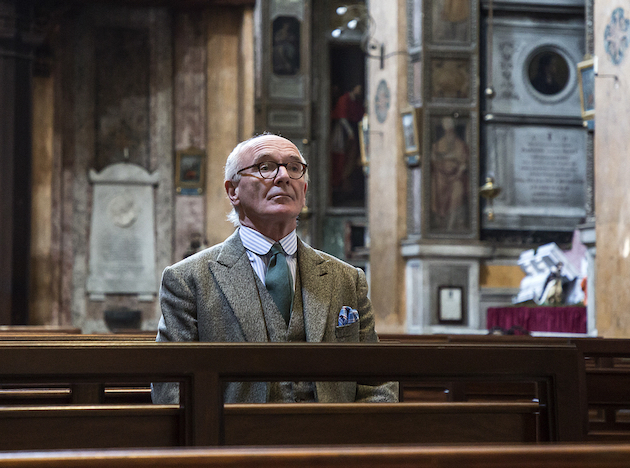
You’ll be glad to know Martin Mosebach has been hard at work. He has written a new novel and his published statements continue to generate controversy and even hysteria in a Catholic Germany slouching towards apocalypse along the Synodal Path. Let’s look at Mosebach’s recent reflections on “Catholic literature,” taken from a lengthy interview in the Süddeutsche Zeitung Magazin. Invigorating and certainly controversial, these remarks are, by the way, entirely consistent with his previous writings on the subject.
Interviewer: You are a Catholic, and in your essays battle against the modernization of the rites of the Church. You like to formulate slogans like: “We believe with our knees or we don’t believe at all.” Did you ever have an experience of spiritual enlightenment in your life?
Mosebach: No, my religious roots were never that deep, although they always existed. The connection with the Catholic religion began to grow only after I was thirty.
Interviewer: Your novels take place in religiously indifferent milieus. To struggle with faith, to experience a conversion, to suffer martyrdom, to be shattered by guilt, to receive absolution from a mortal sin: why doesn’t any of this appear in your works?
Mosebach: I’m not a friend of what is called “Catholic literature.” Propagating religion in the form of a novel seems to me to be a dangerous undertaking. Allow me a perhaps mildly scandalous comparison. Just as in pornography an image of sexuality is created, projected by the lustful imagination and omitting anything that could disturb it, likewise “Catholic Literature” is in great danger of adjusting the world to Catholic doctrine. My nightmare image of such literature is the death of Lord Marchmain in Brideshead Revisited: the old sinner who nevertheless crosses himself as he breathes his last. I find something like this absolutely tasteless.
Interviewer: Why do you consider humor “a sign of the Catholic world view”?
Mosebach: A sense for the comic presupposes a pessimistic image of man and history. Because an optimist aims at the perfection of the good, he can be neither absurd nor cynical nor playful. His expectations, projected into the future, are more important to him than the understanding of present reality, which can captivate despite its frailty. The foundation of the Catholic world view is the conviction of the irreformable imperfection of the fallen world of original sin, in which every kind of grand and lofty endeavor at some point fails miserably. T.S. Eliot called the Catholic religion the “philosophy of disillusion” – not to expect from the world that which the world cannot give. Thus, comedy is the really Catholic form of literature.
Interviewer: Why then is the clergy united in its lack of interest in fiction?
Mosebach: Literature has tasks different from those of theology. It lives from contradictions, imagination, invention, and suggestions. Theology must keep all this at a distance – which it regrettably doesn’t always do.
“I like attacks better than boredom…Moreover, there is no right to be read.” Interview with Sven Michaelsen, Süddeutsche Zeitung Magazin p. 8-15 (March 5, 2021). Translation – SC.
Related Articles
No user responded in this post